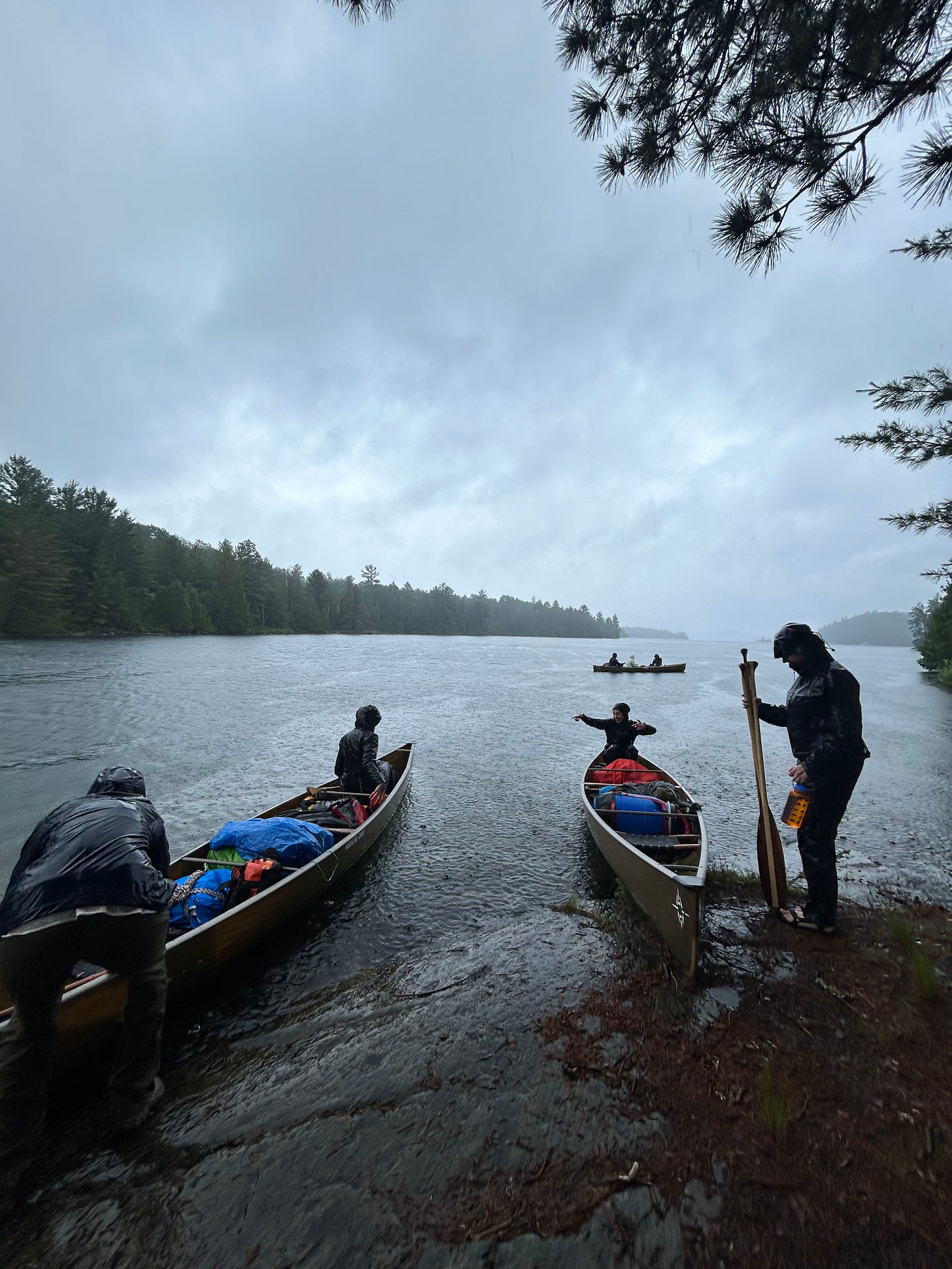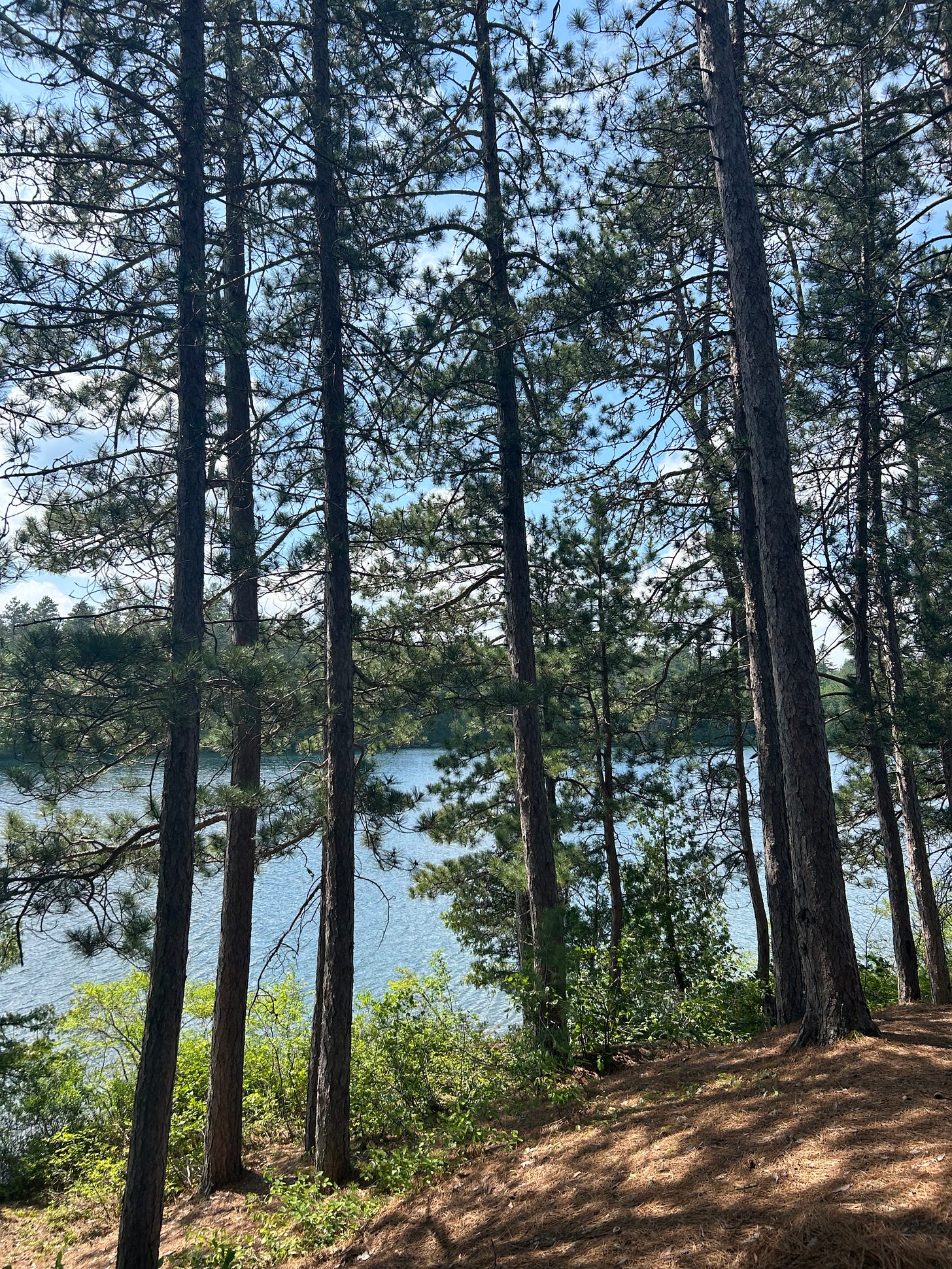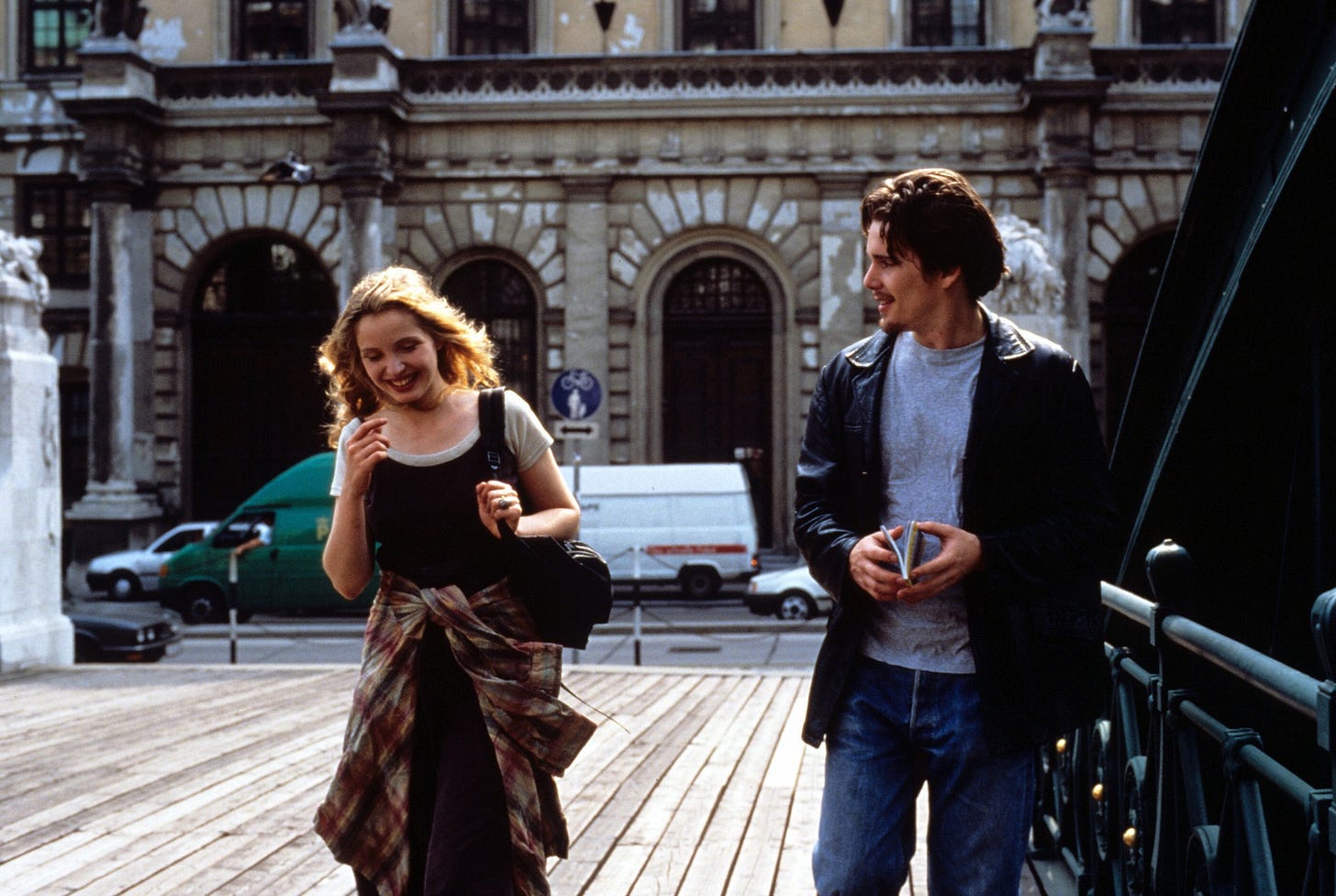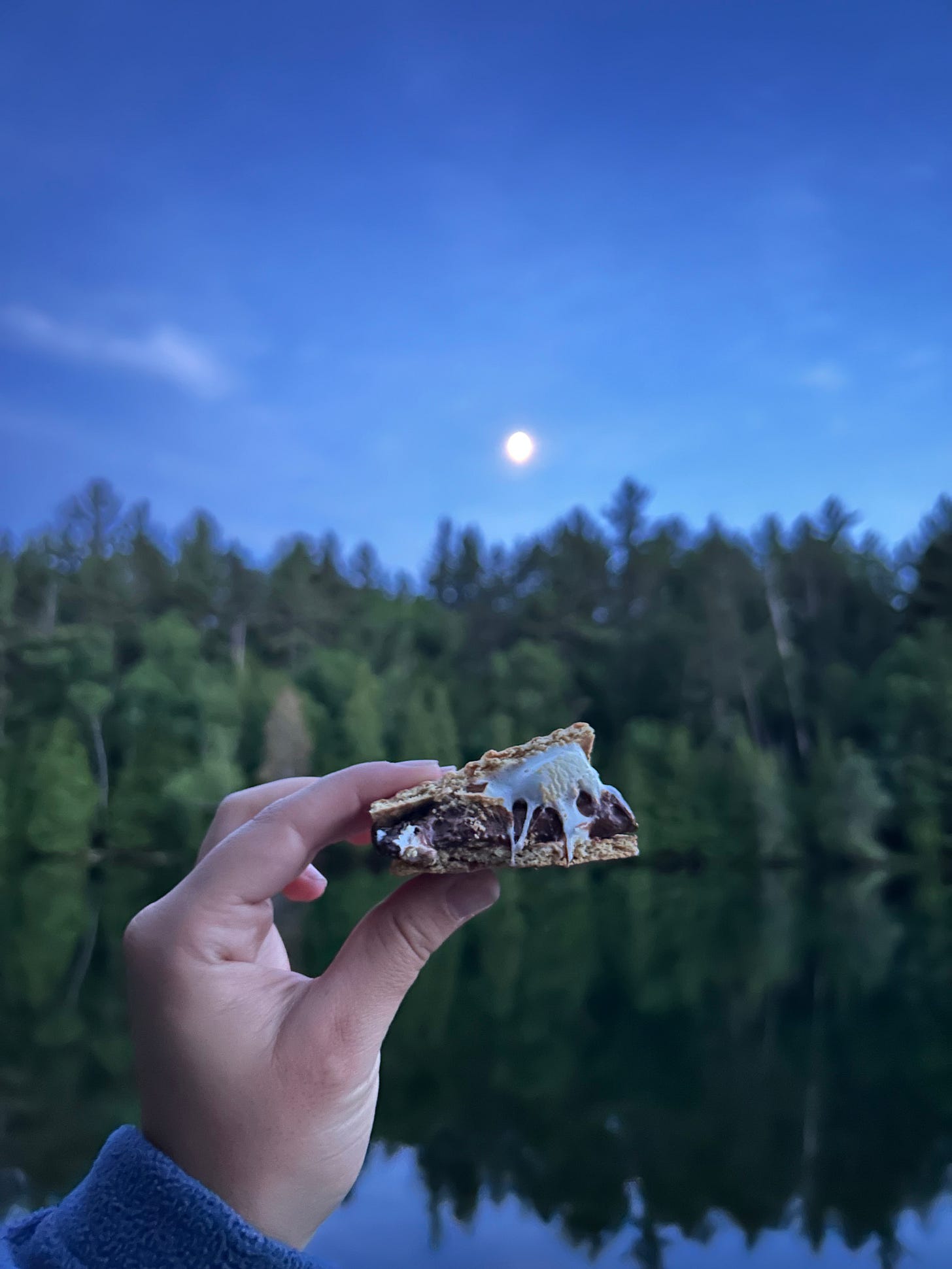observations on a phone-less existence
addiction, but make it socially acceptable
I spent the entirety of yesterday without my phone; it wasn’t wholly intentional. I usually try to go without my phone in the morning as I go to the café I write at, to see what I can tap into within my own mind in the absence of stimulus.
But I got too close to an appointment I had scheduled in the afternoon, and did not have the time to go home. I walked to the closest public transit and departed to the appointment, which lead to a multi-hour journey that felt more vivid and alive than anything I’d experienced in quite a while (which, admittedly sounds rather disheartening). I noticed myself seeing and observing things I had not seen before, never looked at or for, never noticed, right before my eyes in a city I’d spent decades in.
One interesting observation from the day was about posture; in the absence of a device to curl my body over, I felt more aware of my posture, of the way I was sitting than I had been in a very long time. I had nothing to hover above, funnelling stimulus into my brain like I needed it to survive, so my shoulders were pulled back, my head sitting squarely above them, my eyes looking up, forward and around me, attentive yet relaxed.
Conversely, I noticed that, aside from me, everyone was absorbed into their devices. The word I choose here — absorbed — is intentional. They were not just using their devices. They were being swallowed by them. Their posture hanging over their devices like they were using a drug they needed to get as physically close to as possible to get the strongest effects from. Completely absent-minded to the sights, sounds, stimulus of their environment. Barely aware of when they needed to get on or off the vehicle, or where we were, what was outside, what was being said on the sound system.
I noticed myself feeling bored—truly bored—in a way I haven’t felt in a while. Usually I will allow myself to feel some degree of boredom. I often walk without stimulus to and from wherever I am choosing to go, I almost never use headphones, instead paying attention to the environment around me. I try to prioritize meditation. Lean into quiet at home. But to be in an environment that was not particularly comfortable or enjoyable and to be sitting there with no source of stimulus or distraction was quite humbling. It was a different form of boredom, one I actively wanted to numb, to escape from. It wasn’t even particularly uncomfortable or unpleasant. It was fine, really. But my tolerance for being in a situation I did not particularly want to be in and staying there before hitting the metaphorical eject button by immersing myself in my stimulus of choice through a device is, I learned, pretty much zero. So staying in this state for some time was a fascinating internal experiment.
Another thing I noticed: while initially, my instinct was to escape and numb out, over time I grew much more equanimous to this environment and to my inner state. I took some comfort in knowing that it would eventually end, that I was headed home and this would be a reasonably short journey of grappling with this boredom and less-than-ideal stimulus in a very controlled, temporary way. Suddenly I was actually feeling gratitude; for the home I was headed to, for the transit that was taking me there, for the impermanence of this moment. I let the gratitude fill me up, welcoming the shift away from the negativity that had been tugging at my consciousness prior.
In that period between feeling frustrated at my inability to numb myself out with my device-induced trance, I began to feel curious about what was around me, and ultimately incredibly excited to soon be arriving at home. To be in the comfort of my air conditioned (sorry to my European readers) comfortable home, where I could amuse myself in any which way I pleased.
Initially I was expecting to get home all torn up about how inconvenient and BORING my afternoon was, but I actually got home full of peace, and genuine appreciation for the access I had to all my typical comforts.
While on the bus, the only stimulus I had access to was my kindle which I read from on and off throughout the journey. The book I am reading is written by a woman who was an extreme drug-addict-turned-neuroscientist studying the effects of addiction on the brain (the book is Never Enough by Judith Grendel). One of the insights she presents in the book is how when you take any kind of drug, your brain compensates by creating the opposite effect within itself to bring you back to homeostasis. Think: drinking alcohol makes you feel relaxed and free, a hangover makes you feel tense and anxious… The inverse effect, often known as the ‘come down’ or the ‘hangover’ is your brain’s effort to bring you back to equilibrium. If you use any substance enough, your set point changes so drastically that you eventually feel the need to use the drug just to escape the ongoing ‘rebalancing’ effect of your brain, where your sober experience starts to feel like a nightmarish cacophony of uncomfortable inner sensations that you want to escape, which brings you to use more, which worsens the after effects, which brings you to… you get the picture.
The flip-side is that when we expose ourselves to negative experiences like pain or discomfort, our brain rebounds by creating the positive effects that are necessary to get back to equilibrium. So, in my hours long journey of boredom and direct exposure to a less than ideal set of stimulus, I could feel my brain climbing upwards back to equilibrium when I got off the journey and began to come back into a state of access and control. In other words, I had “earned” the positive set of emotions and inner sensations by enduring a less than pleasant set of emotions and sensations beforehand.
Scrolling on our phones or doing anything that is essentially the human version of hitting the positive stimulus refresh button like a coked-up rat leads us to have the opposite arc. We are flooding our mind with what it finds pleasure in seeing: a funny joke on the internet, entertaining media, sensationalized news. And when we withdraw from this stimulus, we feel this steep decline in our inner state, as if we tapped our “joy” reserves dry and are now sliding down a slope of negative emotion, just to get back to baseline, because of the stimulus we’ve been mindlessly indulging in!
The “addict” reaction to this sensation is to (unwisely) reach for more of the stimulus to numb out the “come down” (think: having a drink to get through a hangover, or: reopening Twitter or Instagram when your brain is feeling drained and dry after you just closed it upon scrolling yourself into oblivion.
The problem with this reaction is that you simply make the “come down” or recovery worse every time you re-expose yourself to the stimulus.
I know this to be true from the near-nirvana levels of consciousness I have hit from days without my phone. A few weeks ago my friends and I went on a canoe trip. This meant four days in the woods without any reception or technology. We were humbled by the reality of this disconnect when we were rained out ruthlessly on our last day and desperately tried to salvage a satellite phone connection, which, when it failed, resulted in us having to beach our canoes on the shores of a summer camp we had never been to and humbly ask them to use their phone. Real old school type shit! (The camp ended up welcoming us warmly, allowing us to warm up and change, giving us tea and tiramisu(?!) and overall providing us the most climactic psychic experience of relief after being freezing from paddling in the rain all day).
It was amazing to see the range of emotions we experienced through these few days. Genuine peaks. Genuine lows. When we finally got to a warm hotel room that night, we were all feeling like we had just done the most powerful drugs in the world, so high on the simple comforts of daily civilized life that we couldn’t stop giggling and worshipping each tiny pleasure. The beds felt like clouds, the showers felt like magical holy waterfalls, the coffee prepared without periodic strolls to and from the lake to collect water felt luxurious.
We had a completely renewed appreciation and humility for the things that we had previously taken for granted. So much so that we (or at least I) had become completely ignorant to the blissful comforts of daily life until returning to them. The emotional low—the sense of genuine scarcity that we were in with respect to these luxuries in the woods—brought a heightened sense of awareness and appreciation for these things when we finally regained access to them upon our return.
(This sense of appreciation fades rather quickly though, which is why I went on another canoe trip this past weekend :-)).
before continuous tech consciousness
I recently watched the movie Before Sunrise for the first time. I loved it, of course. A movie full of witty dialogue and slow-moving, easeful romance? Right up my alley. One thing that stood out to me was how genuinely present and un-self conscious the characters were. When being asked intimate questions, they did not recoil in the awareness that what they were saying could be somehow shared to millions of people on social media. They didn’t have all of the typical mind viruses installed from the never-ending stream of stimulus we are all usually consuming, that then clouded their own ability to thinking independently. They didn’t get bored or distracted when faced with long stretches of time where there was nothing to do or say, and nowhere to go. They were just Being, effortlessly. They were making full contact with the moment. They were surrendering to where they were and allowing where they were to delight them.
This level of presence, surrender and raw interesting-ness as a function of a time where there was clearly much less thinking done on your behalf by a device that was practically attached to your limb was humbling to see play out on screen.
And as I sat on the bus that morning and allowed the waves of out-of-my control stimulus and sensations to flood in and out of my awareness with nothing to take me “out” of the moment, I considered it a grounding reminder, a nostalgic reboot, and a gracious gesture from the universe to remind me just how magical and wonderful our minds are when we leave them with the space to arrive at their own conclusions. The open loops get closed, the creatives ideas get synthesized, and the good feelings rush in naturally, slowly and organically — instead of harshly, abruptly and synthetically as we hopelessly refresh our phones to find joy in the pixels that stare back at us, only to subject ourselves to ride the emotional wave downwards after we put it away.
Let your mind be bored. Do your own thinking. It’s a new age and the addictions we are most vulnerable to are stealthily concealed, beckoning our fingertips to refresh them just oneeeee more time, because surely that will be when we find the satisfying thing that makes us want to put our phones away… somehow it never does, though, does it?
We must take technological discipline into our own hands, and take seriously the capacity we all have to succumb to our wired-in addictive impulses. For we are not much stronger than those slouching ungracefully over the more explicit addictive substances that we recoil from, so convinced that that ‘could never be us’. Our substance of choice is just a little more socially acceptable and aesthetically benign. But our posture slouching over its source, incessantly pressing the administration button, just to get ONE MORE HIT of that delicious informational injection, gives this ruse away.
May you have the strength to resist the impulse to ‘use’, and the resolve to let yourself be bored. You wouldn’t believe how interesting your own imagination can get. I’ll be attempting to do the same.
1:1 coaching
If you want to harness your agency, liberate yourself from old narratives, tap into your natural genius and cultivate the life you want, reply to this email saying ‘Next Step’ (or DM me on substack/X) to learn more about my 1:1 coaching.
related essays: my phone is making me dumb, reclaim your attention, on self-trust, comfort, get out of your head, have you noticed that rule is arbitrary, becoming yourself is a process of reduction
If you want more of my writing, upgrade to unlock the full archive:
A substack note of mine that people enjoyed this week:
Comment below if you have been attempting to reclaim your mind, and if anything has been particularly helpful! Let us share our wisdom and cleanse our minds together:
Bonus photo for your enjoyment:









Overdose on boredom! Thanks for the reminder.
🎯